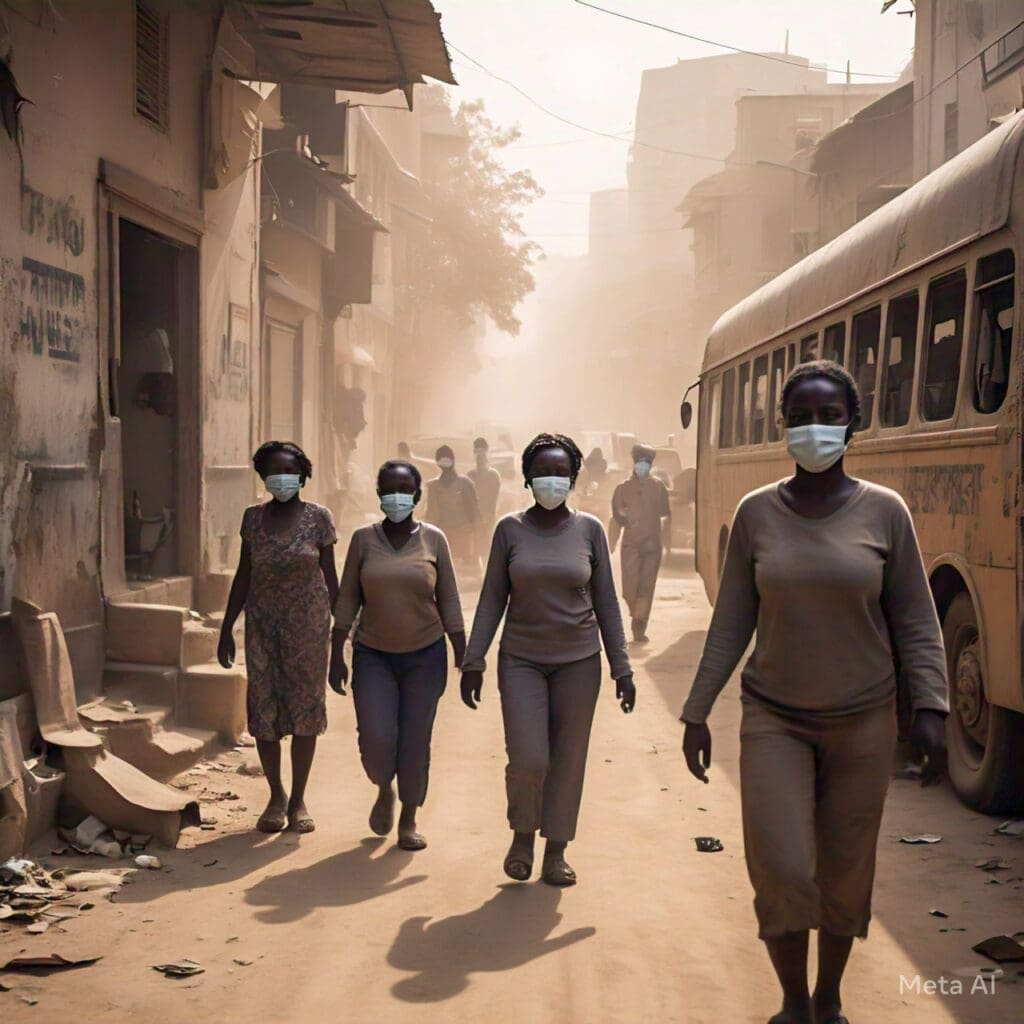The harmattan season, typically experienced between November and March, is a unique weather condition that significantly affects Sub-Saharan Africa, including Nigeria. Characterized by dry winds, dusty air, and low humidity, this season presents a variety of challenges that can impact daily life, health, and overall well-being.

For Nigerians and other Sub-Saharan Africans, understanding how to cope with the harshness of harmattan is essential for maintaining comfort and health during this period.
In this article, we’ll explore the effects of harmattan on health, skin, and lifestyle while offering practical tips to survive and thrive during this challenging season.
What is Harmattan?
Harmattan is a dry and dusty trade wind that originates in the Sahara Desert and blows over West Africa. It brings with it significant changes in weather, such as:
- Low humidity: This results in dryness of the skin, lips, and throat.
- Dusty atmosphere: The harmattan wind carries fine particles of dust, creating hazy skies and reducing air quality.
- Temperature fluctuations: The mornings and evenings are usually cold, while the afternoons can become hot and dry.
While harmattan is a natural phenomenon, its effects on the environment and human body can be quite severe if not managed properly.
Health Impacts of Harmattan
The harmattan season poses numerous health challenges due to the dusty and dry conditions. Below are some common health issues experienced during this period:
1. Respiratory Problems
- Dust particles in the air can irritate the respiratory system, causing conditions like asthma, bronchitis, and sinusitis.
- Individuals with pre-existing respiratory conditions are particularly vulnerable.
2. Dry Skin and Cracked Lips
- Low humidity causes skin to lose moisture, resulting in dryness, flaking, and cracking.
- The lips are especially prone to becoming chapped during harmattan.
3. Eye Irritation
- Dust particles can irritate the eyes, causing redness, itching, and watering.
- Prolonged exposure to dust can also increase the risk of conjunctivitis.
4. Dehydration
- The dry air can lead to rapid water loss from the body, increasing the risk of dehydration.
- Symptoms include dry mouth, fatigue, and dizziness.
5. Viral Infections
- Cold and flu viruses thrive during harmattan, making people more susceptible to infections like coughs, colds, and sore throats.
Lifestyle Tips to Survive Harmattan
1. Stay Hydrated
- Drink plenty of water to replenish lost moisture and prevent dehydration.
- Include hydrating foods like fruits and vegetables in your diet, such as watermelon, oranges, and cucumbers.

2. Moisturize Your Skin
- Apply a rich moisturizer or body oil immediately after bathing to lock in moisture.
- Natural oils like coconut oil, shea butter, and olive oil are excellent for keeping the skin hydrated and soft.
- Use lip balms or petroleum jelly to protect your lips from cracking.
3. Protect Your Eyes and Nose
- Wear sunglasses to shield your eyes from dust and reduce irritation.
- Use a face mask or scarf to cover your nose and mouth when outdoors, especially on windy days.
4. Maintain a Healthy Indoor Environment
- Keep windows and doors closed to prevent dust from entering your home.
- Use a damp cloth to clean surfaces and trap dust effectively.
- If possible, invest in an air purifier to improve indoor air quality.
5. Dress Appropriately
- Wear layers of clothing to stay warm during cold mornings and evenings.
- Choose lightweight, breathable fabrics for the hotter afternoons.
- Use gloves and socks to protect your hands and feet from dryness.
6. Care for Your Respiratory Health
- Steam inhalation can help clear nasal passages and relieve respiratory discomfort.
- Avoid outdoor activities during peak dusty periods.
- Consult a doctor if you experience persistent breathing difficulties.
7. Eat a Balanced Diet
- Include foods rich in vitamins and antioxidants to boost your immune system.
- Spicy foods can help clear nasal congestion, while herbal teas can soothe sore throats.
8. Exercise with Caution
- Avoid outdoor exercise during dusty periods to prevent respiratory irritation.
- Opt for indoor workouts or gentle stretching to stay active.
Special Considerations for Families
For Children
- Apply mild moisturizers on their skin to prevent dryness.
- Dress them in warm clothing, especially during the cold mornings.
- Ensure they stay hydrated and avoid playing in dusty areas.
For the Elderly
- Older individuals are more susceptible to respiratory issues during harmattan.
- Provide them with face masks and keep their living environment clean and dust-free.
For Pregnant Women
- Pregnant women should prioritize hydration and avoid dusty environments to reduce the risk of respiratory complications.
- Use mild, fragrance-free skincare products to prevent skin irritation.
Conclusion
The harmattan season, while challenging, can be navigated with proper care and preparation. By understanding its effects and adopting practical strategies, Sub-Saharan Africans, especially Nigerians, can protect their health, maintain their well-being, and enjoy the season without discomfort.Remember, self-care is essential during harmattan. Stay hydrated, moisturize your skin, protect your respiratory system, and make your living space as dust-free as possible. With these tips, you’ll be better equipped to face the harmattan season with confidence and ease.



